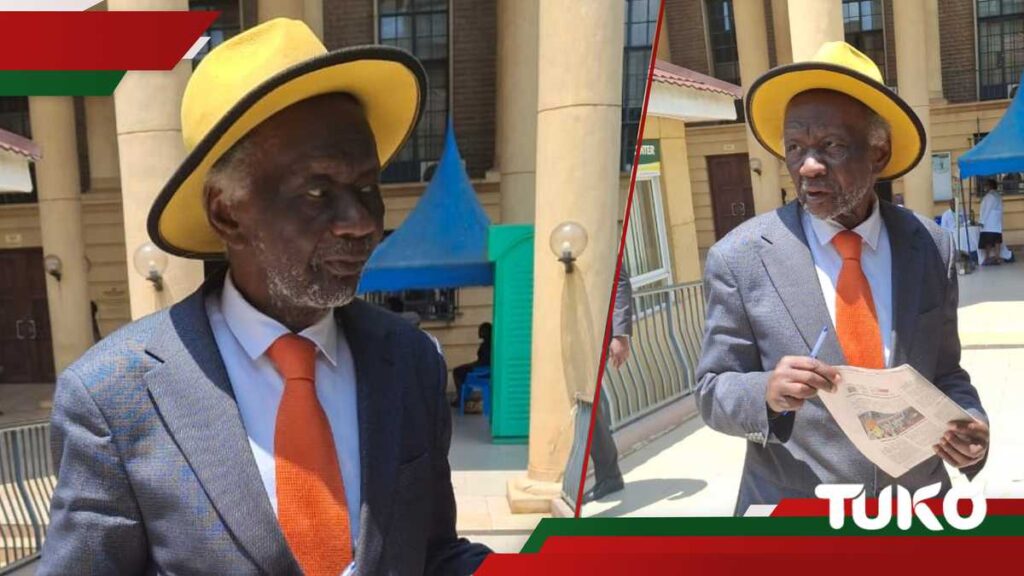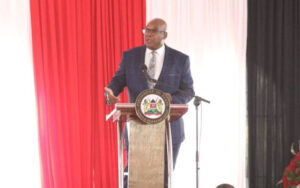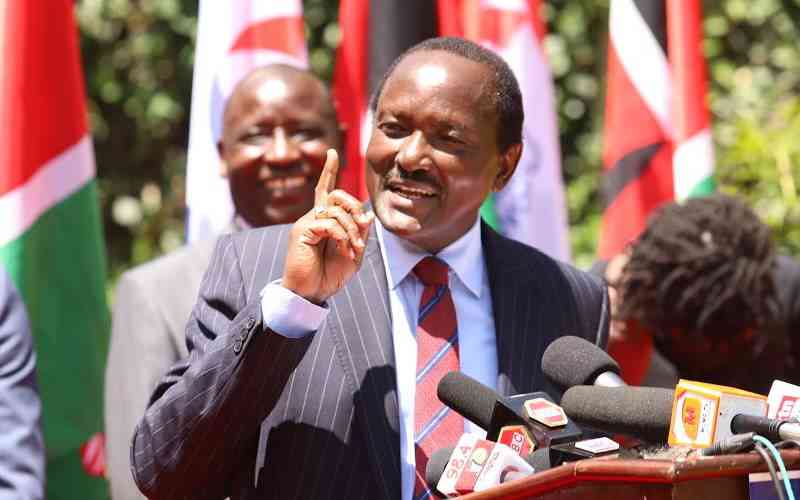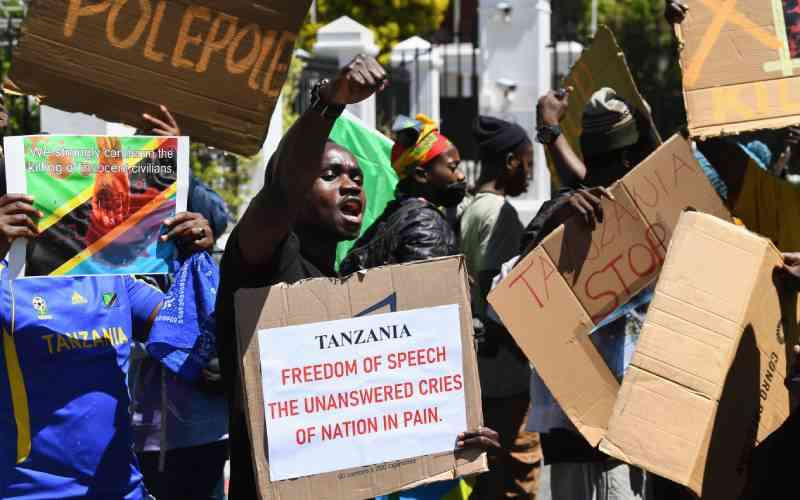Former Deputy President Rigathi Gachagua has come under fire after accusing a group of Kenyan musicians of betrayal and urging supporters to boycott their music following their visit to Deputy President Kithure Kindiki’s residence over the weekend.
Dennis Itumbi, Head of Presidential Special Projects, issued a scathing rebuttal, accusing Gachagua of political intimidation and hypocrisy.
“That Gachagua would stand at a church altar and shamelessly urge Kenyans to unfollow musicians and instruct event venues to deny them work — simply because they supported reason, truth, and government programmes meant to uplift the industry — is not just offensive,” Itumbi said.
“Let it be clear: Kenyan musicians are not your personal choir. You do not own their voices, their choices, or their convictions.”
Speaking during a church service on Sunday, May, 25, Gachagua criticised the musicians for engaging with Kindiki, claiming their actions were politically disloyal.
“Tuwache kusikiza nyimbo zao,” Gachagua declared, which translates to “Let us stop listening to their songs.”
He went on to accuse one of the artists of fabricating claims that he (Gachagua) blocked their political ambitions.
“Imagine one musician went to accuse me of ‘Mr Yes Sir’, that I denied him a chance to vie for MP… A Standard Two drop-out wants to be an MP? A person who doesn’t even know one word in English?” Gachagua said during his remarks.
The comments sparked immediate condemnation from across the music industry and government.
The Music Copyright Society of Kenya (MCSK) also weighed in, warning that it would not tolerate any attempt to sabotage artists economically.
“Any entertainment venue that complies with calls to discriminate against our artists will not be authorised to play music licensed by MCSK,” said Ezekiel Mutua, CEO of MCSK, in a statement on Monday, 26th May.
Mutua termed Gachagua’s remarks as dangerous political interference and called on the public and industry players to reject “divisive and harmful” rhetoric.
“Public performances constitute a vital source of income for our artists. Introducing divisive political measures that threaten this livelihood would be tantamount to destroying the very foundation of their creative enterprise.”
Deputy President Kithure Kindiki described the situation as “exploitative cartels.”
“The creative industry is a multibillion-shilling business. Constant engagement with performing artists and stakeholders is imperative to support them through policy and the protection of intellectual property rights,” said Kindiki.
Stay informed. Subscribe to our newsletter
Itumbi described Gachagua’s comments as “economically reckless, politically desperate, and spiritually dishonest.”
“Kenyan musicians are not pawns in your bitter games. They are entrepreneurs, innovators, and cultural custodians whose talents are God-given,” he added.
“Let us not forget — it was you who once said, ‘When people cannot speak, let them sing.’ Now that the song doesn’t flatter you, you reach for the mute button? That’s not leadership. That’s hypocrisy — loud, proud, and unmasked.”
Itumbi urged artists to stay strong and warned promoters and venues against yielding to political pressure.
“To promoters, platforms and event organisers, do not aid political blackmail. Stand with the artist. Stand with freedom,” he said.
He warned the former Deputy President, noting that, “You can rant; you can shout — but you cannot erase an industry simply because it refuses to clap for you. You don’t get to blacklist talent because it doesn’t worship at your altar.”
Itumbi urged the creative industry and musicians to remain united and undeterred.
“To Kenyans — do not bow. Do not flinch. Your gift is your power, and your platform is your purpose,” Itumbi declared.

























